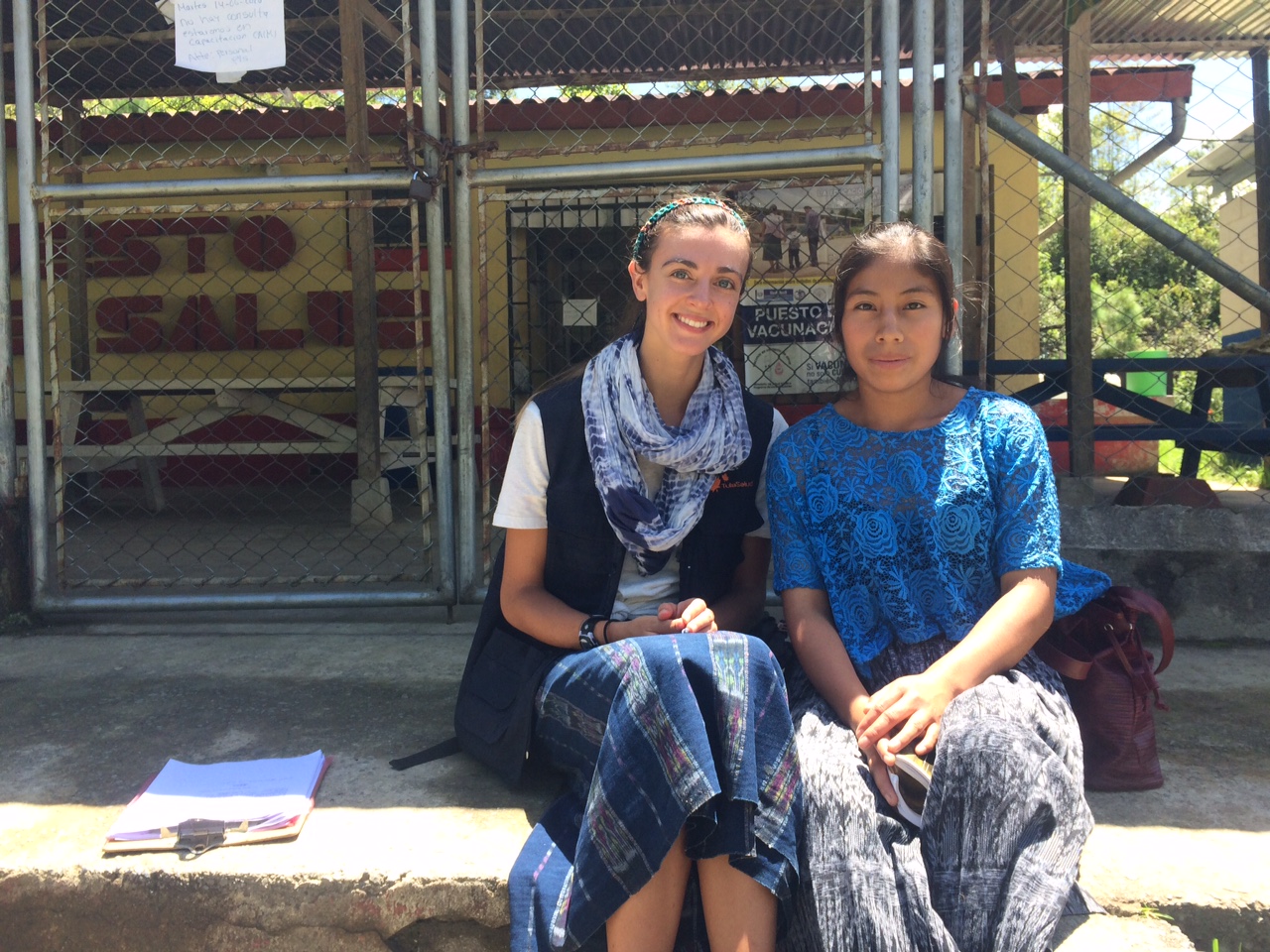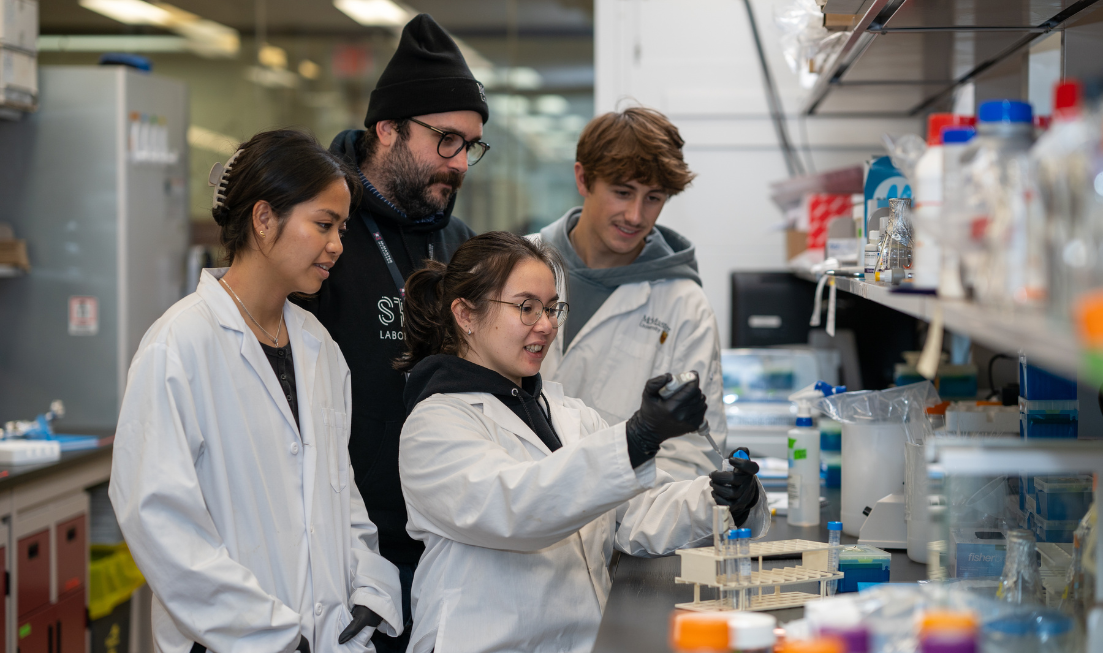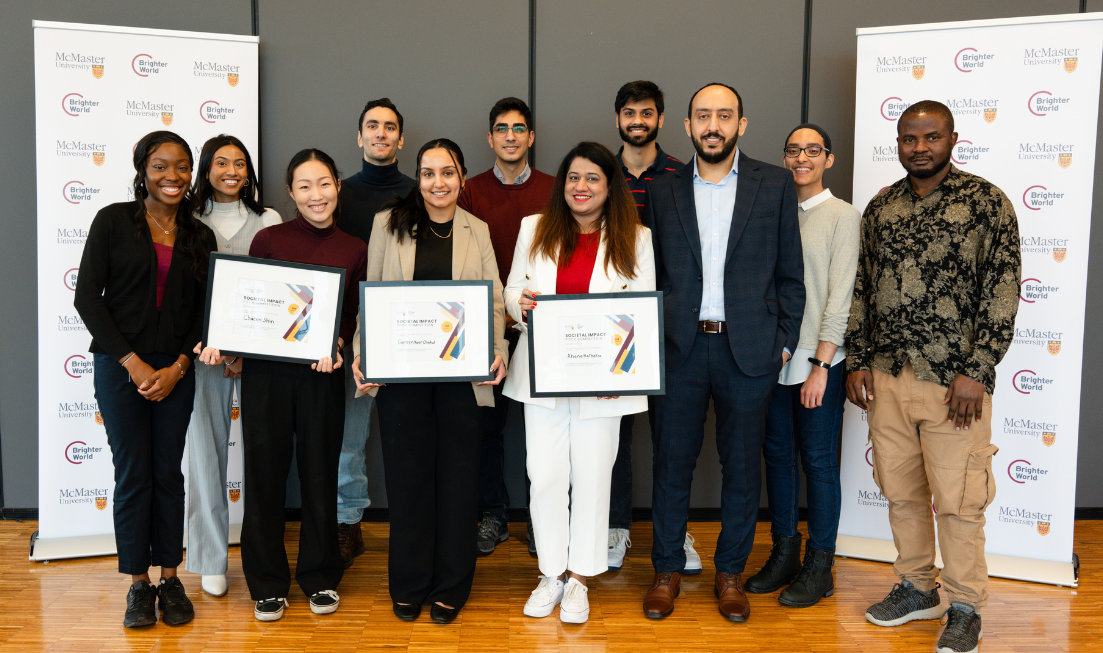Maternal Health in Guatemala: Funding Cuts Won’t Stop McMaster Global Health Students

Katie Aquilla, MSc Global Health student, and a community health worker in Guatemala.
Political instability and funding cuts are threatening the health of pregnant women in rural Guatemala. This is the kind of real-world problem the MSc Global Health program prepares students to tackle.
How? Just ask Katie Aquilla, who is nearing the end of her 6-week field practicum in Alta Verapaz, Guatemala. She has been working with TulaSalud, an organization that has created the mHealth program Kawok to help community health workers (CHWs) better manage high-risk pregnancies and monitor pregnancy complications and cases of child malnutrition in real-time, using smartphones.
However, complications regarding agreements with the Guatemalan Ministry of Health mean that data within Kawok is not currently being collected, and that the phones are not currently available to CHWs. “That’s why we’re here,” says Aquilla, who, along with colleague Natalia Arias, designed two studies to run in the field to see how the health system is currently functioning, how information is being used, and what is missing.
“Results of the studies are currently being interpreted, but it is fair to say that communication is a cornerstone of the health of rural Guatemalan communities,” explains Aquilla, “whether that be support networks, someone to call when a CHW has a question, or a safe ride to help for a woman during a pregnancy emergency.”
Since funding has been cut, the health of communities in rural Alta Verapaz has suffered, and so have the CHWs. “They are continuing to work hard to support the health of their communities, but without the stipends, phones, or regular training they and the communities became used to, the outlook appears a little bleak. We’re hoping that our results show what is currently missing, and where some help could be best served,” Aquilla concludes.
The field practicum, required for completion of the MSc Global Health, gives students the opportunity to put into practice the theory and concepts they’ve learned in the program, and apply them to real-world issues.
“When I started my practicum, I realized that many of the tools we used to craft program plans in Foundations II were invaluable in the real world field of global health” says Aquilla. “When crafting hypothetical global health outreach programs for our courses, we familiarized ourselves with the creation of logistical frameworks, risk registers, and budgets; I was surprised when arriving in Guatemala that comfort with these tools facilitated my understanding of TulaSalud’s operations here” she says.
As her practicum experience draws to a close, Aquilla reflects on what she has learned in the program, and looks ahead to her next challenge: pursuing a masters in speech pathology and audiology. “I look forward to using the tools, theoretical knowledge, and connections I’ve fostered during my time at McMaster to continue learning, and dedicate myself to health in a multifaceted way,” concludes Aquilla.
Global Health News
Related News
News Listing

Daily News ➚
McMaster earns top spot for graduate student research intensity in annual rankings
Global Health News
December 9, 2024

December 4, 2024

McMaster University (Global Health) and the University of Global Health Equity (UGHE), Rwanda Sign a Memorandum of Understanding (MOU)
Global Health News
November 28, 2024
